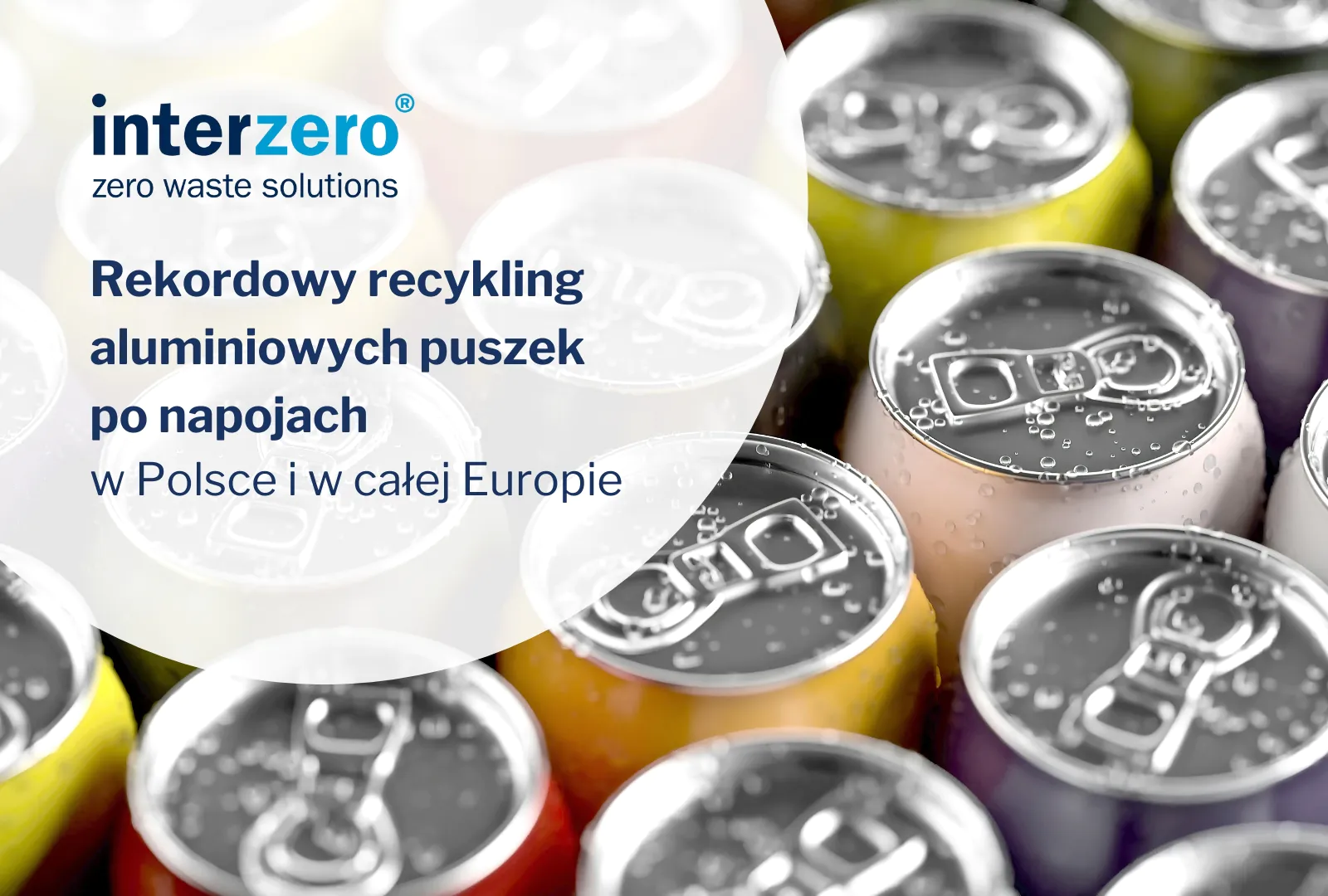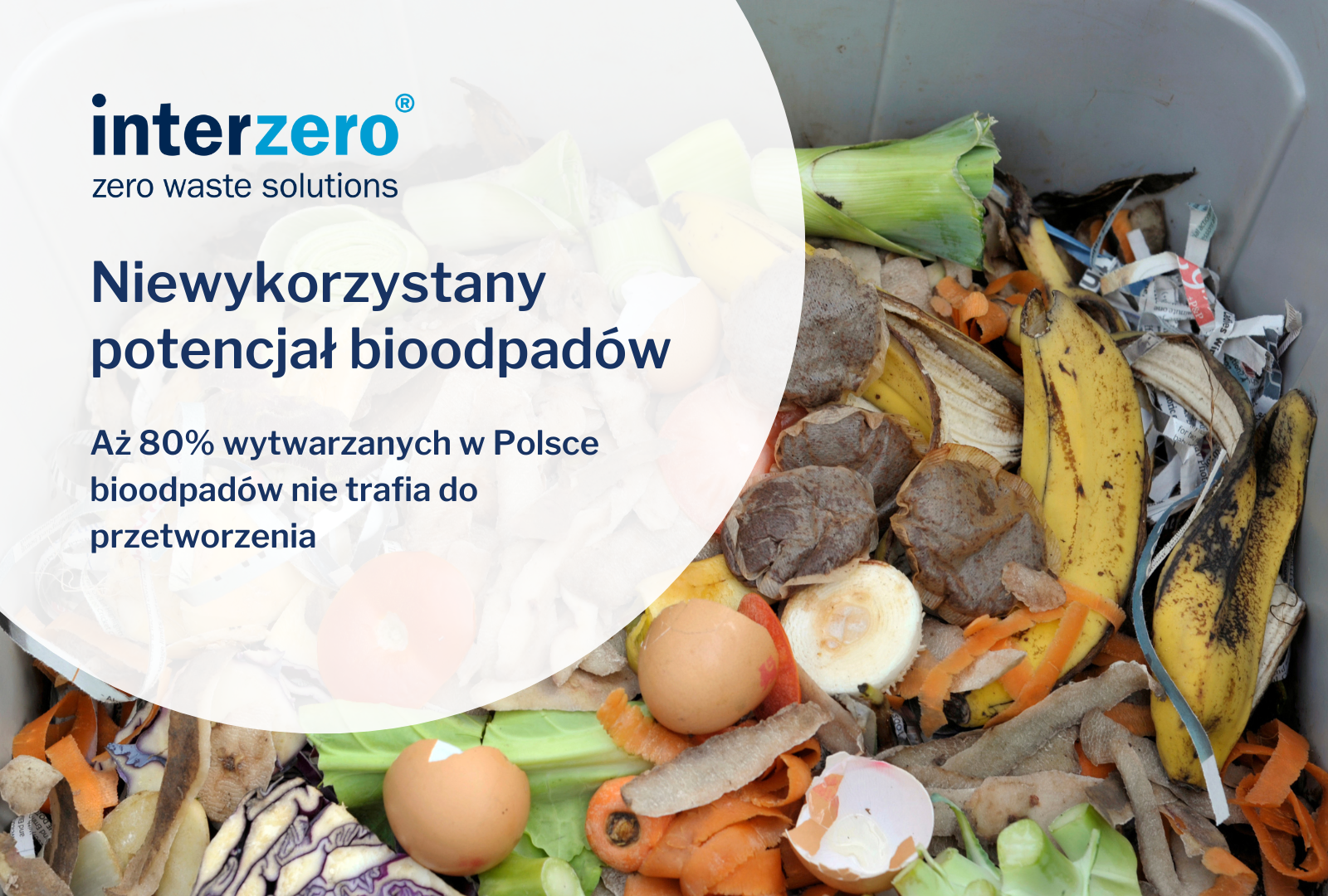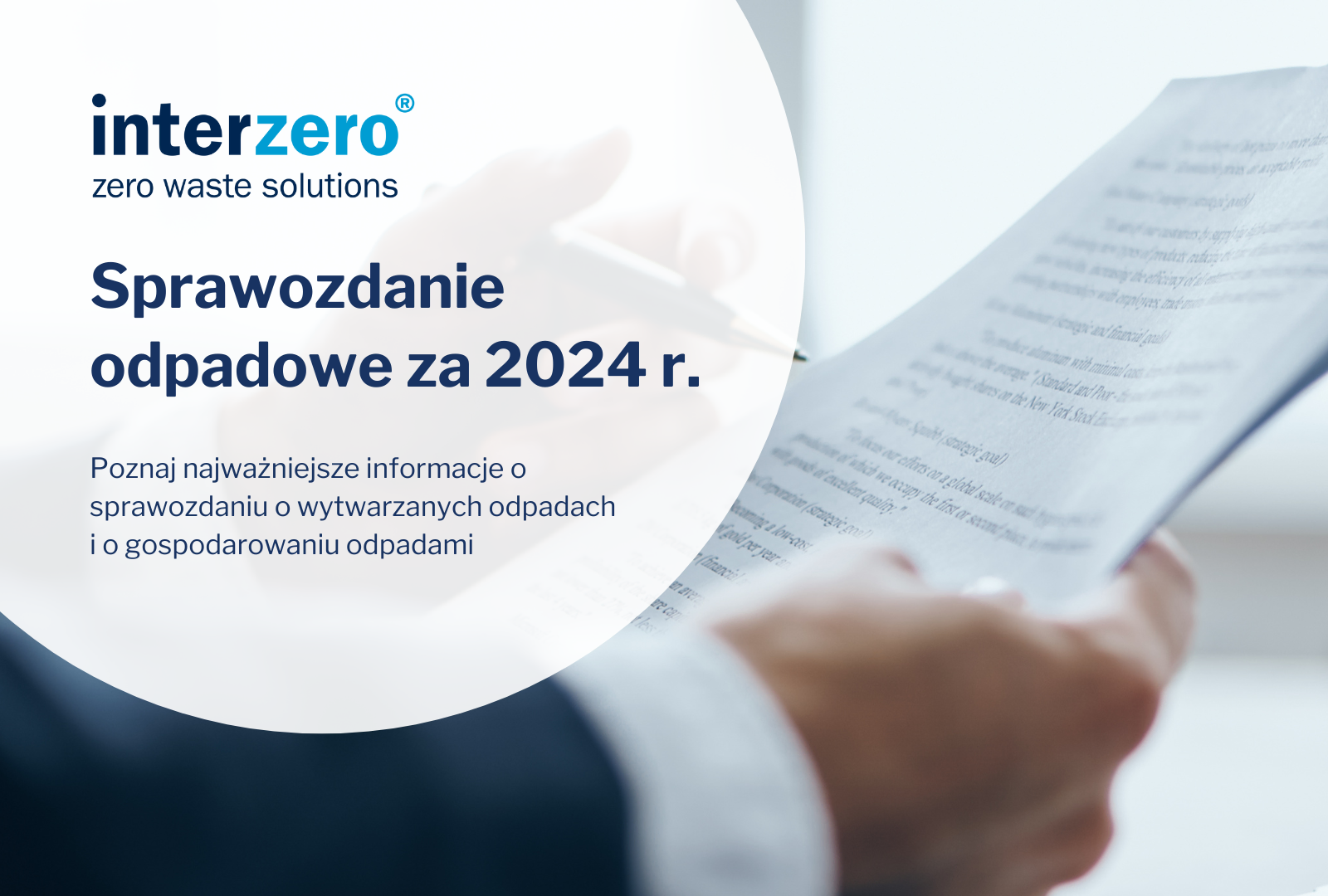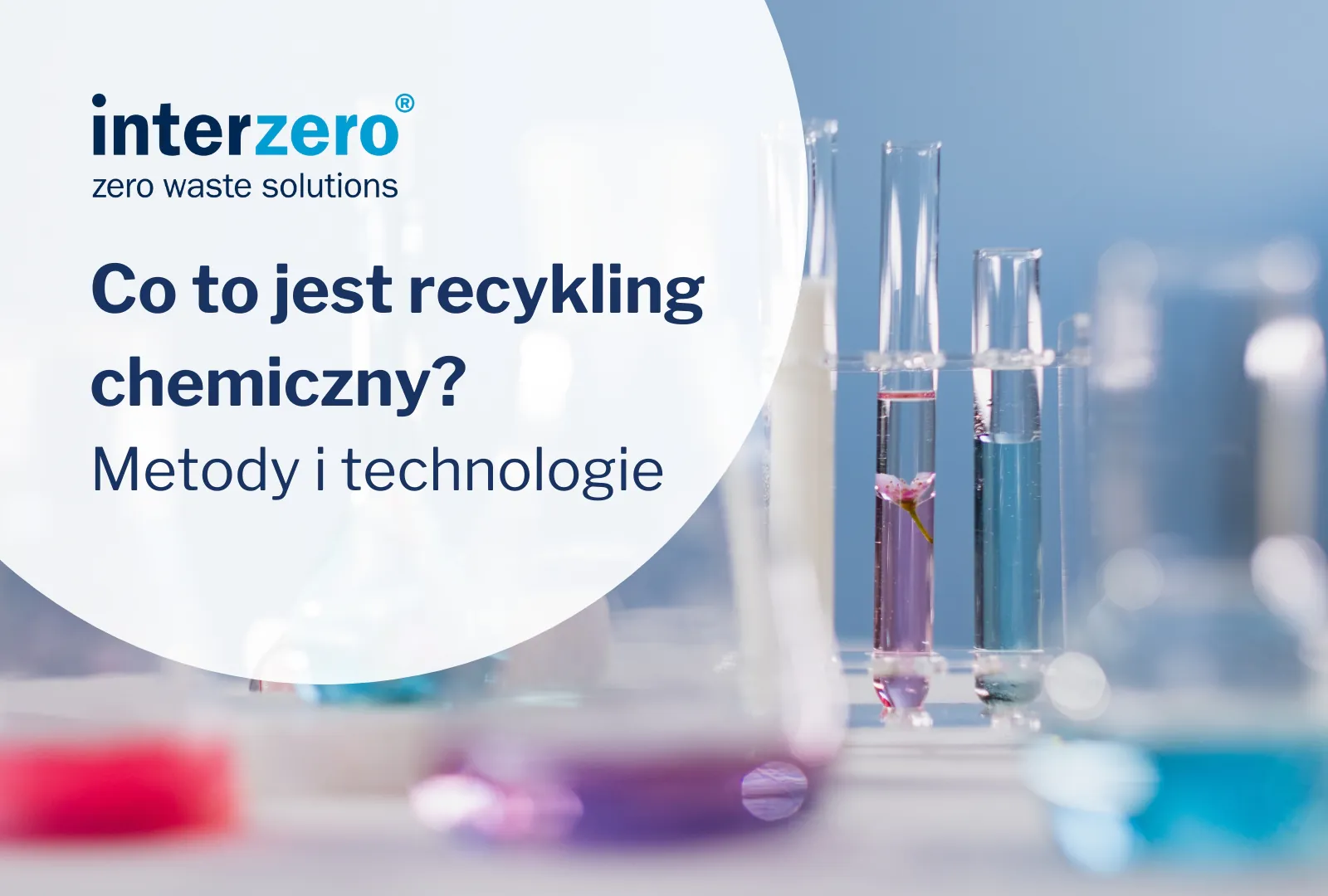Changes are coming to the environmental decision-making procedure
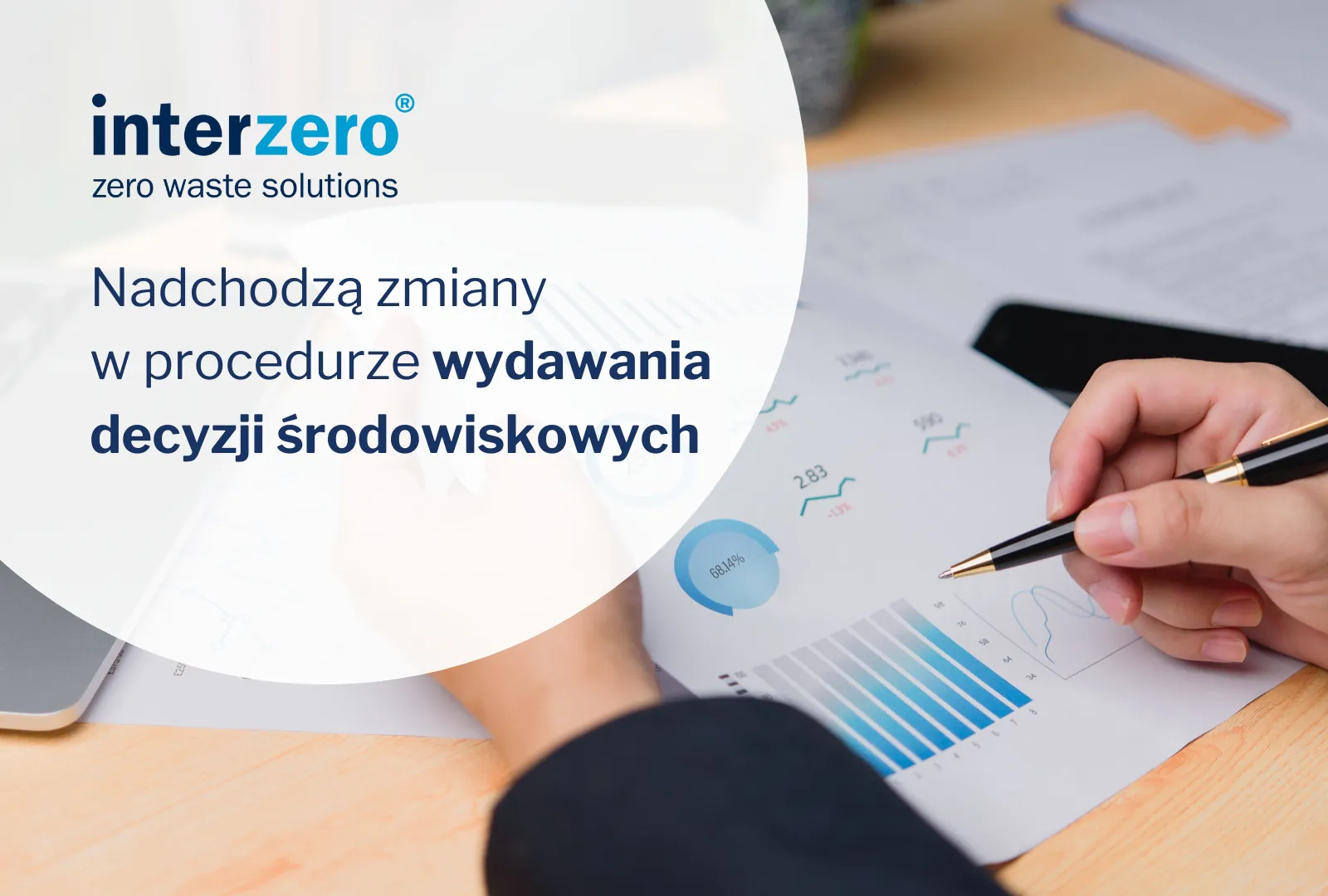
newsletter
The amendment will change the rules for issuing environmental decisions
In the last days of April, the climate and environment ministry announced that it was working on a draft amendment to the law regulating the procedure for issuing environmental decisions. Planned changes are to concern mainly the environmental decisions required for investments that have a significant impact on the environment.
As the government website reads, the need to amend the legislation is due to:
the need to improve the quality of environmental impact assessment procedures, seal and streamline the system, identified during the review of existing legislation and identified problems in the application of current legislation.
The amendment is intended to cover almost all aspects of issuing environmental decisions, from the parties to the proceedings, through the applications and the authorities competent to issue the decision, to issues relating to the use of the decision issued.
For the moment only the aims and objectives of the proposed legislation are known. The bill is scheduled to be adopted by the government in Q3 2025.
Electronic applications will go to the district chiefs
The amendment provides for the introduction of an obligation to submit applications for environmental decisions only in electronic form. At the same time there will be a reduction in the number of annexes that the applicant or his/her representative must provide on paper.
This is not the end of the story - the competence of the authorities will also change. Currently, the competence to issue a decision is dispersed - depending on the type of project, the application is submitted to the head of the municipality, mayor or city president. Ultimately, their tasks are to be taken over by the starost. The Ministry of the Environment and Ecology argues that the move is intended to improve the quality of the proceedings. The possibility of delegating cases to the RDEP other than those arising from local jurisdiction will also disappear. As a reminder, until now, the regional directorates with the heaviest workloads were able to transfer some of the pending applications to directorates in other regions.
Consultative and conciliatory bodies with extended competences
The IOC also aims to ensure that the bodies involved in the opinion can subsequently comment on the changes and new solutions introduced during the environmental impact assessment. Furthermore, the authorities will have the opportunity to indicate a different variant of the investment than that proposed by the investor. Currently, they are only entitled to such an entitlement if the option chosen by the developer is not feasible.
The amendment also provides for clarification of the scope of documents to be submitted to the authorities providing opinions and consultations. The body responsible for drafting the document subject to strategic environmental assessment will have to make the results of the monitoring carried out available to the authorities which were involved in the opinion and agreement in the strategic assessment and to the public.
Clarification of the catalogue of parties to proceedings and broader public participation
The amendment to the Act also aims to remove doubts of interpretation concerning, inter alia, the parties to the proceedings and participants on the rights of a party. In addition, the Ministry of Climate and Environment plans to clarify which rights in rem (ownership, lease, usufruct) should be taken into account when determining the catalogue of parties. We are therefore likely to see a closed the catalogue of entities which may be parties to proceedings for an environmental decision.
A significant improvement will be increasing the number of parties subject to the use of notice by public notice. Such a change is intended to allow for more frequent, direct service of notices to parties concerning proceedings.
The amended legislation is also intended to enable the public to participate more widely in the proceedings. In specific situations (if the nature of the case warrants it), it will be possible to extend the deadline for the submission of comments and applications by the public. At the same time, the body competent to conduct the environmental impact assessment will be exempted from the obligation to consider comments and applications received after the set deadline.
New rules for old environmental decisions - what can be expected?
The assumptions of the draft amendment also provide for the introduction of provisions regulating the use of environmental decisions already issued.
- Withholding a decision or revoking immediate enforceability means stopping the investment
An important piece of information for investors is the planned change to the effects of withholding an environmental decision and revoking the rigour of immediate enforceability. Under the proposed regulations, both of these situations will involve the necessity to suspend investment works to the extent that they are reflected in the decision on environmental conditions.
- Extension of the validity of the environmental decision
The authorities are to be guided by the same standardised criteria when extending the expiry date of the decision to confirm the validity of the conditions for implementing the project.
- Validity of the decision independent of ownership rights
In order to avoid non-compliance with the obligations arising from environmental decisions by new owners of installations, the IOC plans to widen the circle of entities obliged to comply with these obligations and to ensure statutory continuity of compliance, independent of changes in ownership and the degree of implementation of the project.
Source: Draft Act amending the Act on providing information on the environment and its protection, public participation in environmental protection and environmental impact assessments, as well as certain other acts, https://www.gov.pl/web/premier/projekt-ustawy-o-zmianie-ustawy-o-udostepnianiu-informacji-o-srodowisku-i-jego-ochronie-udziale-spoleczenstwa-w-ochronie-srodowiska-oraz-o-ocenach-oddzialywania-na-srodowisko-oraz-niektorych-innych-ustaw8
Paper and board packaging production up, newsprint down - Cepi presents preliminary statistics for 2024.
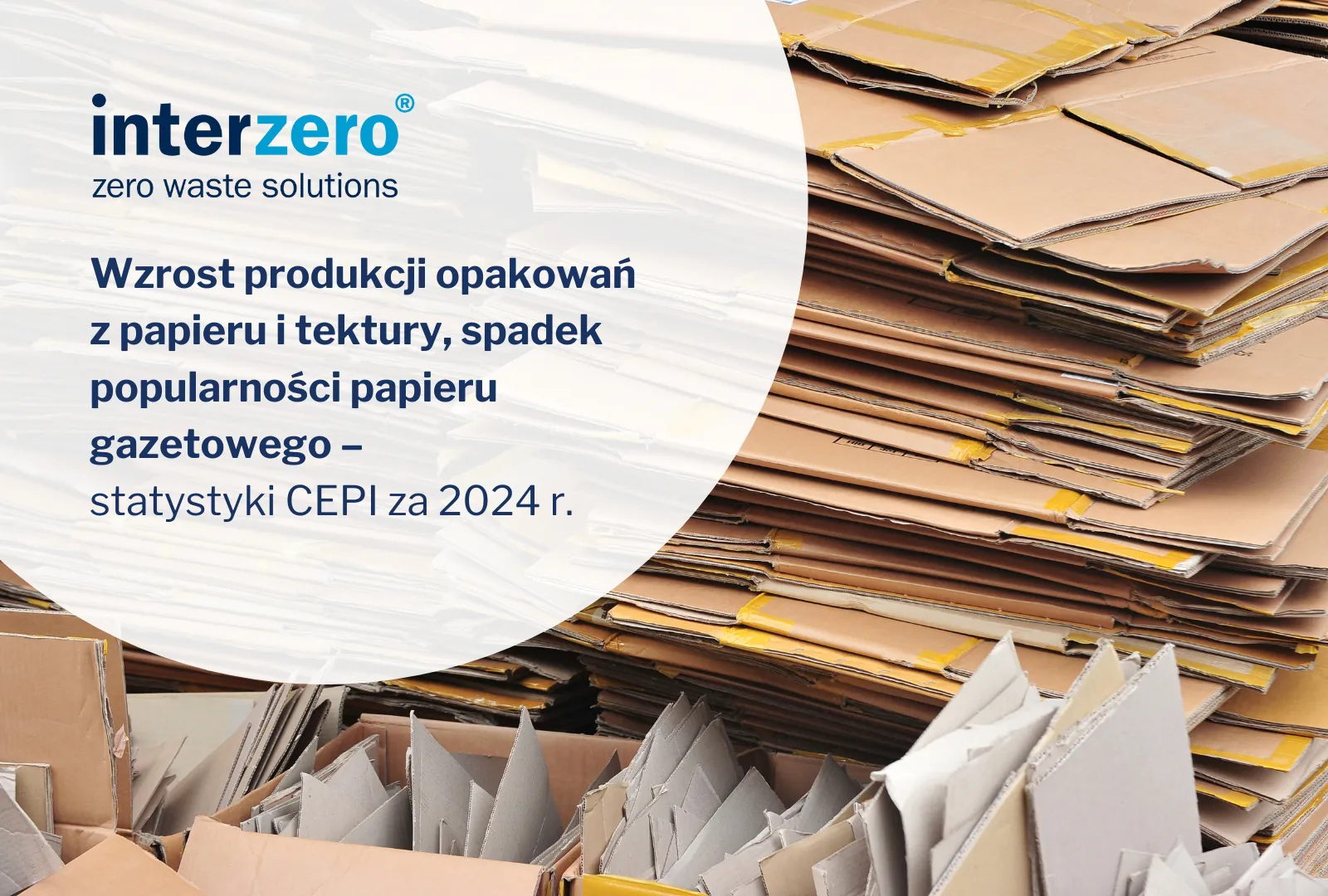
Paper and board packaging production up, newsprint down - Cepi presents preliminary statistics for 2024.
The Confederation of the European Paper Industry (CEPI) has published preliminary paper industry statistics for 2024. The latest figures herald a thaw - after years of post-pandemic declines, we have finally seen increases, and in almost all paper and board categories. However, the entire industry faces entirely new challenges.
Packaging responsible for 63% overall paper production
Let's start with the key statistics for the packaging and recycling industries. As Cepi's preliminary statistics show, up to 63% of the paper and board produced in 2024 was packaging paper. This sum consists of:
- corrugated cardboard - 41.2%,
- packaging papers - 5.5%.
- other packaging papers - 16.3%,
Moreover, compared to 2023 Packaging paper production volumes increased by an average of 6.5%. The largest increases (14.4%) were recorded in the segment of packaging papers used in the manufacture of paper bags. In second place (9.9%) were cardboard and other packaging boards used for retail packaging. Corrugated board (up 4.3%) used primarily for the production of bulk and transport packaging completed the podium.
Increases in paper packaging production volumes were followed by increased use of recycled paper. In year-on-year terms, it amounted to 4,1%.
Growth in consumption and production in Cepi countries and globally
As reported in Cepi's preliminary report, in 2024 the member countries recorded a 5.2% increase in paper and board production, reaching 77.8 million tonnes. The industry also grew globally over the same period, with global paper and board production increasing by 3.6% by 2023.
The increase in paper production in the Cepi States was also accompanied by a substantial 7.5% increase in consumption of paper and paper products. Interestingly, almost all paper categories grew except newsprint, which saw a 1.3% decline in 2024, mechanical coated paper (down 2.1%) and uncoated paper (down 3%).
See what raw materials are used to make paper in Europe >>
Jori Ringman, CEO of Cepi, said:
Recently, we have seen positive signs of growth in the pulp and paper sector. Whether this growth can be sustained depends partly on what the EU institutions do so that we can compete on a level playing field not only with other pulp and paper producers in the world, but also with fossil-based industries.
Paper and packaging industry under pressure from consumers
European paper and board packaging companies therefore face 2 huge challenges: remaining competitive against global leaders from outside the EU and meeting the increasingly high expectations of consumers, who are looking closely not only at recyclability but also at packaging sizes.
Mondi's latest survey shows that simply protecting the product is no longer enough, with 78% respondents indicating that the recyclability of shipping packaging is either important or very important to them. 80% Researcher wants environmentally friendly packaging, while the 71% prefers paper-based raw material packaging. At the same time consumers are not prepared to pay extra for more sustainable packaging - 38% of them puts the matter on a knife edge and will not pay a penny more. 27% may pay more by a token 1%. Interestingly, the boomer generation will be the most likely to pay extra for the green package, with Gen Z resisting the strongest.
Consumers are therefore making demands, but they are also making the boundaries clear - The packaging is supposed to be environmentally friendly, fit properly, easy to open and reclose and free, at least from their perspective. As far as 40% of those surveyed will in future avoid retailers who use excess packaging, and 20% will abandon the purchase due to the lack of sustainable packaging.
Sources:
- Cepi, Preliminary statistics 2024. European pulp & paper industry, https://www.cepi.org/wp-content/uploads/2025/02/FINAL-Cepi-Preliminary-Statistics-2024.pdf
- Mondi Group eCommerce trend report: Sustainability and its impact on packaging and online shopping choices, https://144089501.fs1.hubspotusercontent-eu1.net/hubfs/144089501/GroupeCommerce/MondiGroupeComtrendreport2025.pdf
Record recycling of aluminium beverage cans
Record recycling of aluminium beverage cans in Poland and across Europe
The European aluminium can recycling industry is on track to achieve 100% circularity in 2050. According to the latest figures, in 2022 the recycling rate of this popular beverage packaging was almost 75%, with an increase of 10,000 tonnes of recovered aluminium. Could something stand in the way of a complete closure of the circulation?
Europe has returned 74.6% of aluminium cans to circulation
On 10 February 2025, a report by Metal Packaging Europe and European Aluminium was published, showing that up to 74.6% of aluminium beverage cans placed on the market will be recycled throughout 2022. In percentage terms, this result represents a slight (1%) decrease compared to 2021, so why the mentioned record?
As the report reads in 2022. the total amount of aluminium recovered from beverage cans was a record 580,000 tonnes.. On an annual basis, we have therefore seen an increase of 10,000 tonnes (or 1.7%). This is due to increasing consumption - more packaging is brought to market in 2022, and this in turn increased the total weight of packaging waste entering the recycling stream. At the same time, with the collection and sorting system remaining constant, the percentage of recycling (as a percentage) has fallen slightly as a result of the greater increase in the production and consumption of cans[i].
The authors of the report relied on data from the EU Member States, the United Kingdom, Switzerland, Norway and Iceland. How does Poland compare to Europe?
Poland above the European average. How many cans have we recycled?
Beverage can recycling in Poland has remained at a consistently high level for several years. Data from the RECAL Foundation shows that in 2022. the level of recycling of alu cans was as high as 80%. It was only better in 2017-2018 (81% and 80.5% respectively)[ii]..
Poland is among the countries with the highest level of can recycling. We are ahead of 11 countries, most of which already have well-functioning deposit systems. It is in the development of deposit systems in more European countries, representatives of Metal Packaging Europe and European Aluminium see opportunities for a further increase in the percentage of cans returned to circulation.
Packaging director at European Aluminium, Andy Doran, commented:
"The continued high level of recycling reinforces our belief that we are moving in the right direction. The latest results also show that it is a marathon, not a sprint. 2022 has seen the implementation of several deposit schemes and as they mature, recycling rates will continue to rise."
CEO of Metal Packaging Europe, Krassimira Kazashka, she added:
"We welcome the latest results and believe that the industry remains on track to achieve 100% circularity of aluminium cans by 2050. [...] Following the EU's recent adoption of the Packaging and Packaging Waste Regulation, we encourage Member States to implement sustainable and efficient deposit systems that enable full circularity of aluminium cans through 'can-to-can' recycling."
Increased aluminium recycling means reduced environmental burden
The Metal Packaging Europe and European Aluminium report also refers to the environmental benefits of recycling aluminium packaging waste. In 2022, the processing of just one type of waste - an aluminium beverage can - allowed the reduce emissions by 5.4 million tonnes of CO₂eq (carbon dioxide equivalent). This amount corresponds to the annual emissions of a city with more than half a million inhabitants, such as Oslo or Genoa.
Read more about the environmental benefits of aluminium recycling in the article: Aluminium recycling - can you close the loop in 60 days?
Sources:
[1] Metal Packaging Europe and European Aluminium, Record Number of Used Aluminium Beverage Cans Recycled as Industry Drives Toward 100% Circularity by 2050, https://european-aluminium.eu/wp-content/uploads/2025/02/EA-MPE-BevCan-2022-Recycling-Results-Press-Release-10-February-2025.pdf.
[2] Recycling, https://recal.pl/recykling/
Recycling fee 2025 - who and when must pay the fee for plastic bags?
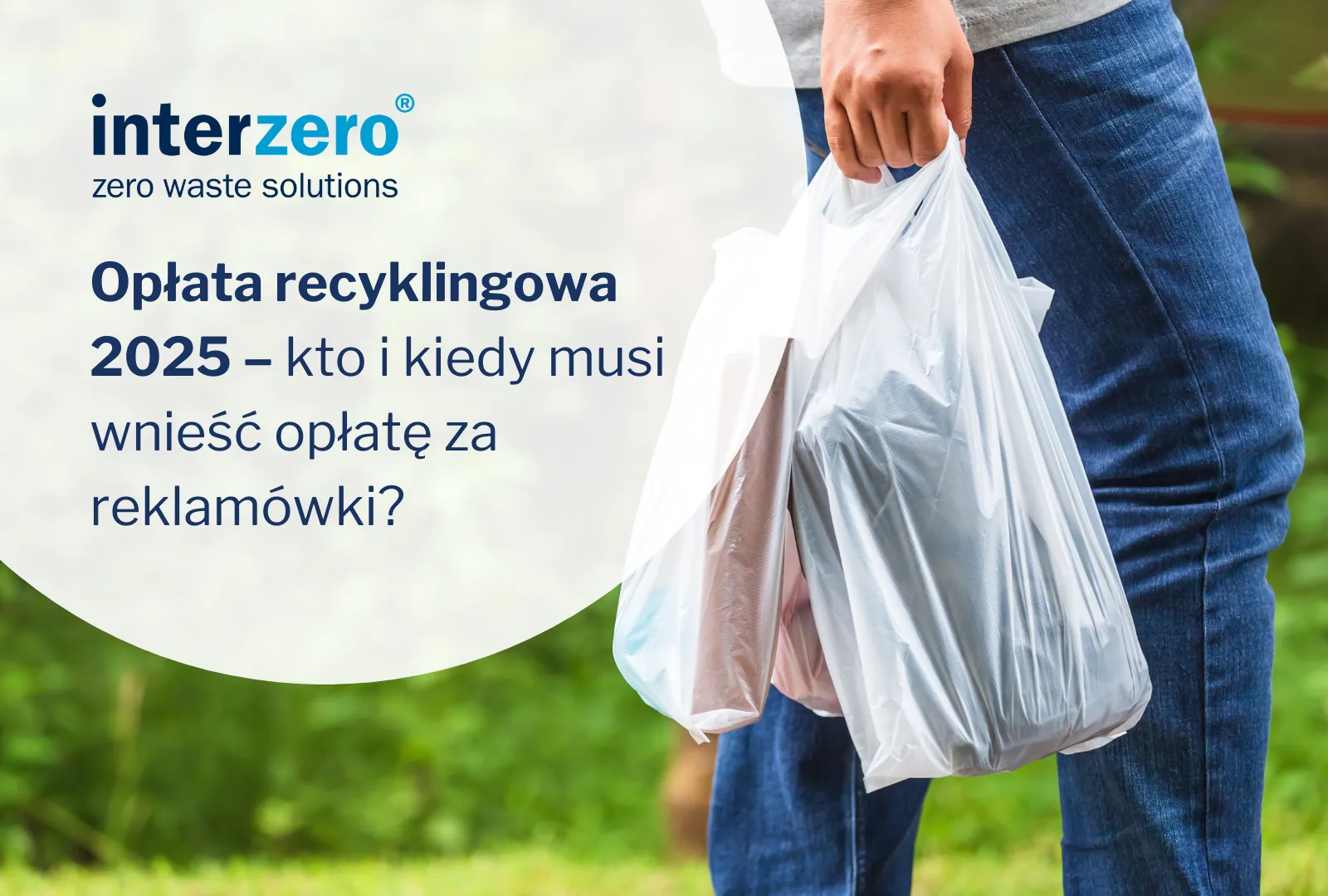
Recycling fee 2025 - who and when must pay the fee for plastic bags?
Shop owners and wholesalers who offer plastic bags to their customers are required to pay a recycling fee. How much is the fee for plastic bags in 2025 and when does it have to be paid? Learn the most important information about the recycling fee.
What is subject to the recycling fee?
The recycling fee applies to all plastic shopping bags . with the exception of the so-called break-ins , i.e. very light bags made of material less than 15 micrometers thick, which are:
- necessary for hygiene reasons,
- used as primary packaging for loose foods (as long as they prevent food waste).
This means that the recycling fee is not charged, for example, for shopping bags on a roll or plastic bags used for packing fresh bread, fruit and vegetables, meat, cheese, etc.
Entrepreneur's obligations related to the recycling fee
Every entrepreneur running a shop or wholesale store (retail or wholesale trade entity) where plastic shopping bags are offered to customers is obliged to :
- collecting a recycling fee from buyers (customers),
- transferring the collected recycling fee to the appropriate bank account within the set deadlines,
- keeping records of the number of bags purchased and issued (light, i.e. from 15 to 40 microns and others, i.e. 50 microns and more) in paper or electronic form. Owners of several sales outlets must keep separate records for each of them,
- submitting an annual report on the number of plastic bags purchased and issued to customers (so-called packaging and product reports ).
Recycling fee rate 2025 - how much is the fee for plastic bags?
From 1 September 2019, the recycling fee rate is 20 PLN for each plastic shopping bag, regardless of its thickness.
The recycling fee may be included in the total purchase cost of such a bag or may be added to the price of the bag set by the seller.
Until when is the recycling fee due in 2025?
The recycling fee is settled quarterly. It is paid by the 15th day of the month following the quarter in which the fee was collected.
In 2025 the recycling fee must be paid:
- for the first quarter - until April 15, 2025,
- for the second quarter - until July 15, 2025,
- for the third quarter - until October 15, 2025,
- for the fourth quarter - until January 15, 2026
Do you charge a recycling fee? You are required to register with BDO!
Owners of shops and wholesalers obliged to collect the recycling fee are also obliged to obtain an entry in the BDO register. An application for entry must be submitted before starting commercial activity . For selling plastic bags to customers without the required entry in the BDO, the entrepreneur can receive a fine from PLN 5,000 to PLN 1 million!
Do you want to handle formalities without any problems? Entrust your BDO registration to Interzero experts!
After registering with BDO , you will receive a registration number , and the province marshal will create an individual account for your company in the system and send you a login and password. An account in the BDO register is necessary to submit an annual report on the number of bags purchased and issued to customers with a thickness of 15 to 49 micrometers and 50 and more micrometers - this obligation can only be fulfilled electronically!
FAQ
Find answers to frequently asked questions about the recycling fee for plastic bags.
The recycling fee is paid by the buyer (usually the consumer) of the plastic bag. The entrepreneur selling the bag only collects the recycling fee and transfers it to the province marshal.
The recycling fee applies to all plastic bags, except for very lightweight bags (material thickness less than 15 micrometres) used for hygiene reasons or as primary packaging for loose food products (provided they prevent food waste).
Yes, provided they are made available to buyers for hygiene reasons or as primary packaging for loose food . In other cases, e.g. when the so-called tear-offs are used to pack products in packages or products other than food, a recycling fee must be paid for them.
Yes . The buyer of a plastic bag is required to pay a recycling fee, and the entrepreneur selling the bag is required to collect it and then transfer it to the bank account of the voivodeship marshal within a specified period. The exception are bags with a material thickness of less than 15 micrometers , provided they are used for hygiene reasons or as primary packaging for loose food, which prevents its waste.
The recycling fee collected from customers is paid into the account kept by the marshal of the voivodeship appropriate to the place of business activity .
NO . The recycling fee regulations only apply to plastic bags.
Want to offer your customers more sustainable alternatives to plastic bags? Check out what to use to replace tear-offs and disposable plastic bags!
Environmental Report 2024
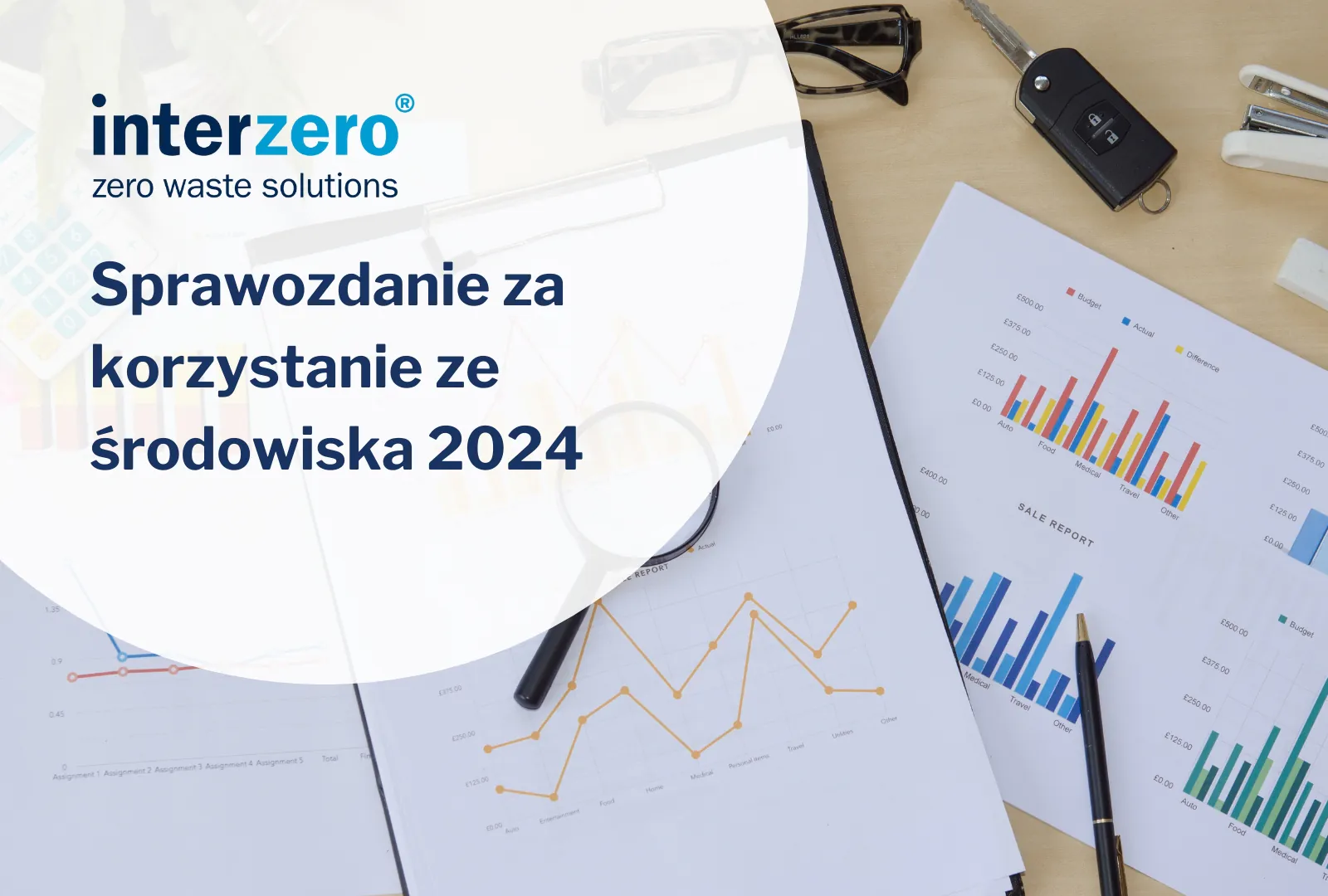
Environmental Report 2024
Entities that release gases or dust into the air and store waste are required to submit annual reports and calculate the fees due. These obligations result from the Environmental Protection Act and apply not only to companies, but also to institutions, individuals and other entities using the environment.
What is an environmental report?
The report on the use of the environment is a document prepared annually by companies, institutions and individuals using the environment. It contains information on the extent to which a given entity used the environment and the amount of fees it should pay for this.
The report on the use of the environment may consist of one or more lists - their number and type depend on the type of activity conducted by the entity and the extent to which it used the environment.
Who must submit a report on the use of the environment?
A report on the use of the environment is required to be submitted by entities that in a given calendar year:
- released gases or dust into the air from various processes (e.g. from boiler rooms, use of company combustion vehicles, poultry farming or breeding),
- were issued emission allowances ,
- stored waste .
These entities include:
- entrepreneurs (also foreign ones),
- organisational units that are not entrepreneurs (e.g. foundations, associations, schools),
- persons conducting agricultural production activities, e.g. agricultural cultivation, animal breeding or husbandry, horticulture, market gardening, forestry and inland fishing,
- other natural persons who use the environment to the extent that this requires a permit.
Importantly, there is no obligation to submit a report if the calculated annual fee for one type of use of the environment does not exceed PLN 100.
By when should information on the use of the environment be submitted for 2024?
The report on the use of the environment for a given calendar year must be submitted by 31 March of the following calendar year.
This means that the deadline for submitting the report on the use of the environment for 2024 expires on 31 March 2025. We remind you that the deadline for paying the fees calculated in the report expires on the same day!
How to submit a report on the use of the environment?
The report on the use of the environment is submitted to the marshal of the voivodeship competent for the place of use of the environment:
- in person (during a visit to the Marshal's Office),
- by letter,
- electronically (via ePUAP), by signing the document with a qualified signature or trusted profile.
Entities using the environment can also entrust the preparation and submission of the list of the scope of use of the environment to Interzero experts . We have been fulfilling reporting obligations on behalf of our clients for many years. We therefore have a long practice and rich experience in comprehensive, professional service of various entities using the environment. Write to us at our e-mail address or use the contact form . We will help you identify your obligations and submit the necessary documents on your behalf: quickly, reliably and without engaging your time.
Discover our full range of environmental reporting >>
If you use the environment, you can also prepare the report yourself by filling in:
- mandatory: a list containing a summary of information on the scope of use of the environment (if the fee for using the environment exceeds PLN 100),
- if you release gases or dust into the air: a list containing information on the amount and types of gases or dust released into the air,
- if you have emission allowances: a list containing information and data on the volume of greenhouse gas emissions covered by the emission trading system and the number of emission allowances and the amount of fees due,
- if you store waste: a list containing information about the waste stored.
The current templates of these lists can be found in the annexes to the Regulation of the Minister of Climate of 11 December 2019 on lists containing information and data on the scope of use of the environment and the amount of fees due (Journal of Laws 2019, item 2443).
The EkoPłatnik application, which is provided by some marshal's offices, helps in preparing the report. After preparing the report, however, it should be submitted in one of the forms mentioned above.
FAQ
Find answers to frequently asked questions about the environmental impact report.
The list and information on the scope of use of the environment do not have to be submitted by entities for which the calculated annual fee for one type of use of the environment does not exceed PLN 100 .
Information on the use of the environment consists of:
- in person at the Marshal's Office competent for the place of use of the environment,
- by e-mail to the address of the Marshal's Office responsible for the place of use of the environment,
- electronically (via ePUAP), by signing the document with a qualified signature or trusted profile.
Remember that reports prepared in the EkoPłatnik service must then be submitted in one of the indicated ways! The service does not allow for automatic submission of documents.
Depending on the type of business you run, you must complete one or more of the following lists:
- mandatory: a list containing a summary of information on the scope of use of the environment (if the fee for using the environment exceeds PLN 100),
- if you release gases or dust into the air: a list containing information on the amount and types of gases or dust released into the air,
- if you have emission allowances: a list containing information and data on the volume of greenhouse gas emissions covered by the emission trading system and the number of emission allowances and the amount of fees due,
- if you store waste: a list containing information about the waste stored.
NOTE: If the fee calculated for a given calendar year for one type of use of the environment does not exceed PLN 100, you do not have to complete or submit any of the lists!
You do not have to pay for using the environment if the fee for a given calendar year for one type of use of the environment does not exceed PLN 800. If at the same time this fee is higher than PLN 100, you are obliged to submit a report within the statutory deadline
Yes. However, it should be remembered that the province marshal may calculate the fee based on his own findings or findings made as a result of the WIOŚ inspection of your company. For this reason , we encourage you to settle any reporting arrears as soon as possible . Our experts will be happy to help you identify all of your company's obligations and complete outstanding and current formalities. Write to us and see how we can help you!
Environmental Fee 2024 and 2025 - the most important information for entrepreneurs
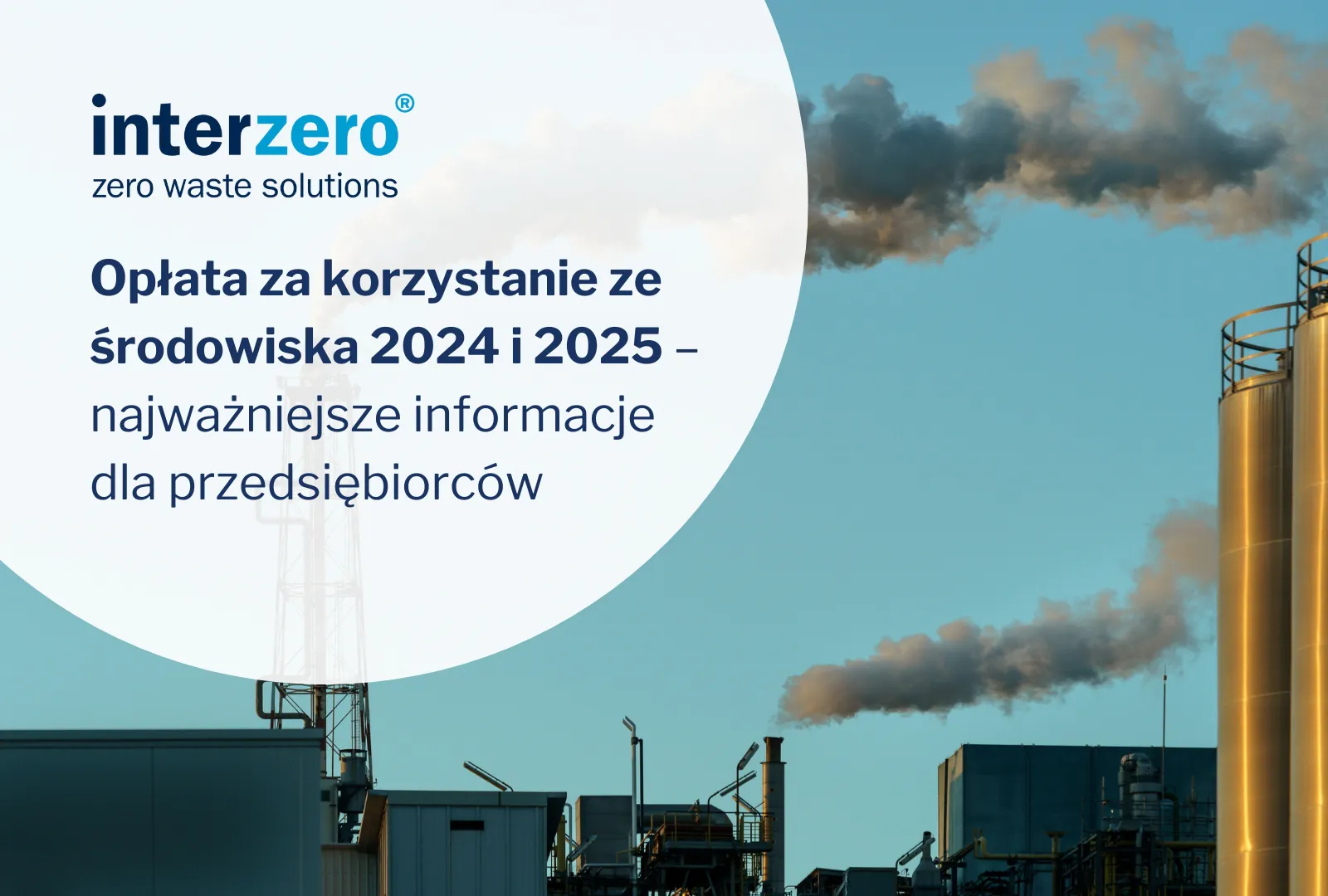
Environmental Fee 2024 and 2025 - the most important information for entrepreneurs
The Environmental Protection Act imposes on entities using the environment the obligation to pay an environmental fee. If your company's activities affect the environment, it is probably your obligation to calculate and pay the fee. Who should pay the fee and by when? Where is the best place to check the current rates of the fee for using the environment? We advise.
What does the environmental fee concern and what does it result from?
Entities using the environment are required to pay a fee, sometimes called an environmental fee. It is a kind of compensation for damage to the natural environment resulting from the activities of a company, institution or individual.
The obligation to pay an environmental fee applies to the following activities :
- resulting in the emission of gases or dust ,
- requiring emission rights ,
- related to waste storage .
The amount of the fee for using the environment depends mainly on the amount and types of dust and gases released into the air and on the amount and type of waste stored, as well as on the time of their storage.
The funds raised from fees are mainly allocated to national and provincial environmental protection funds.
Who has to pay the environmental fee?
Fees for using the environment must be paid by entities using the environment , which include:
- entrepreneurs ,
- organisational units that are not entrepreneurs ,
- persons conducting agricultural production activities ,
- other natural persons who use the environment to the extent that a permit is required .
Obliged entities must also independently determine the amount of the fee for a given calendar year and then pay it to the appropriate bank account. The amount of the annual environmental fee is calculated in the report for the use of the environment.
NOTE: the fee for use of the environment is not payable if it does not exceed PLN 800 for one of the types of use of the environment (e.g. for the introduction of dust and gases).
What are the environmental fee rates?
The rates of the environmental fee change in each reporting year . The list of rates is published in the annual announcement of the Minister of Climate and Environment.
The fee for the release of gases and dust is calculated based on the actual annual emission values specified in the report to the National Database on Emissions of Greenhouse Gases and Other Substances kept by the National Centre for Emission Balancing and Management IOŚ-PIB (KOBiZE).
Entities that use the environment without having a permit or decision required by law must pay an increased fee. Do you need support in obtaining permits, approvals or decisions? Entrust the preparation of all environmental documentation to Interzero!
Environmental fee rates for 2024
The upper unit rates of the environmental fee applicable in 2024 were as follows:
- PLN 512.23/kg of gases or dust released into the air,
- PLN 375.25/Mg (tonne) of waste placed in landfill.
The unit fee rates for individual gases, dust and waste can be found in the table attached to this document. Announcement of the Minister of Climate and Environment of August 4, 2023 regarding the rates of fees for the use of the environment for 2024 . If you pay a fee for gases or dust released into the air from combustion processes in diesel fuel engines, use the updated rate from the announcement of November 3, 2023 for calculation purposes.
Environmental fee rates for 2025
The upper unit rates of fees for use of the environment in 2025 have been set at the following level:
- 570.62 PLN/kg of gases or dust released into the air,
- PLN 418.03/Mg (tonne) of waste placed in landfill.
The unit fee rates for individual gases, dust and waste can be found in the table attached to this document. Announcement of the Minister of Climate and Environment of 28 July 2024 regarding the rates of fees for the use of the environment for 2025 .
By what time is the environmental fee due? Deadlines
The environmental fee is payable by 31 March of the current year for the previous year. This means that the environmental fee for 2024 must be paid by 31 March 2025 (Monday).
The environmental fee should be paid into the account of the Marshal's Office competent for the place of registration of the entity using the environment (for gases and dust) or for the place of use of the environment (for others).
Who does not pay the environmental fee? Exemption catalogue
The financial consequences of using the environment do not apply to the smallest entities whose activities have a small impact on the environment - therefore, the fee for using the environment is not paid if it does not exceed PLN 800 for one type of use of the environment (e.g. for the introduction of dust and gases).
Entities for which the calculated fee for one type of use of the environment is between PLN 100 and PLN 800 are only required to submit a list of the scope of use of the environment. If the fee is less than PLN 100, submitting a list is not necessary.
BDO Annual Packaging Report 2024 - the most important information about the report on products, packaging and waste management
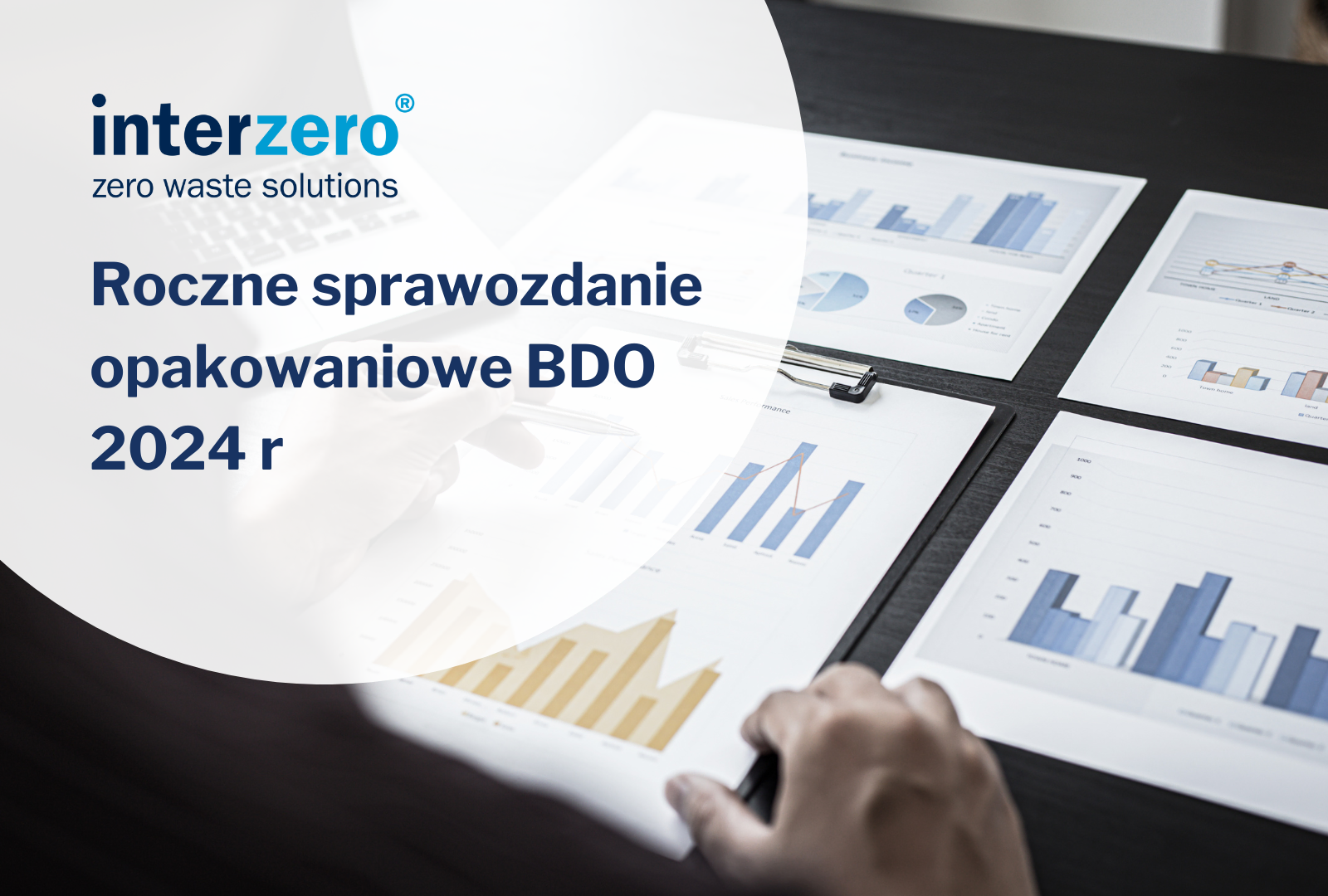
BDO Annual Packaging Report 2024 - the most important information about the report on products, packaging and waste management
One of the annual obligations of those introducing packaged products, packaging and certain types of products is to prepare a report in the BDO. What is the scope of the packaging report in BDO? Who has to submit them and by when? Discover the most important information about the report on products, packaging and waste management.
What does the BDO packaging report concern?
The packaging report is a document containing information on the quantities and types of of packaging and products that the entrepreneur introduced to the market in a given calendar year , as well as on the types and masses of packaging and post-consumer waste that the entrepreneur recovered and recycled during that period .
The catalogue of packaging and products covered by the report on products, packaging and the management of waste generated from them includes:
- individual, transport and collective packaging, including plastic bags covered by the recycling fee,
- tires,
- oils and greases,
- vehicles,
- electrical and electronic equipment (including used ones),
- batteries and accumulators,
- selected disposable plastic products,
- fishing gear.
The exact scope of the report on products, packaging and the management of waste generated from them depends on the type of activity conducted by the company in a given calendar year.
Who reports on products and packaging for 2024?
The following entities are required to submit a packaging and product report to BDO for 2024:
- packaging manufacturers and exporters,
- manufacturers, exporters, importers and entrepreneurs carrying out intra-Community supplies of packaged products,
- introducing disposable plastic products covered by the SUP Act,
- introducing oils, lubricants and tires (including automotive stores and wholesalers),
- sellers of RTV, household appliances, consumer electronics and other electrical equipment,
- vehicle sellers and importers,
- shops and wholesalers that offer plastic shopping bags to customers,
- deposit system operators (representing entities),
- authorised representatives introducing electrical and electronic equipment.
The full list of entities required to submit an annual report on products, packaging and the management of waste generated from them can be found in Article 73 of the Waste Act.
Entrepreneurs who are required to submit a report must be entered into the BDO register and given an individual registration number! If your company has not yet obtained an entry, use our support in registering in the BDO .
When should the packaging report for 2024 be submitted?
The packaging and product report is submitted by 15 March of the current year for the previous year.
In 2025, the deadline for submitting the report on products, packaging and the management of waste generated from them for the year 2024 is Monday, March 17 , 2025 - March 15 is a Saturday, i.e. a day off, which causes the deadline to be postponed to the next business day, which is March 17, 2025.
Entrepreneurs who have ceased their business activity are obliged to submit a packaging report within 7 days of the date of termination.
How to submit a report on products, packaging and the management of waste generated from them?
The report on products, packaging and management of waste generated from them should be submitted electronically, via an individual account in the BDO system . The submitted report will be sent to the voivodeship marshal appropriate for the place of business.
You can complete your BDO report on products, packaging and the management of waste generated from them on your own or with the help of Interzero experts.
-
How to submit the BDO 2024 report yourself?
Log in to your BDO account. From the menu on the left, select "Reporting" and then press the "Reporting on products, packaging and waste management " button. After going to the list of reports, click the "+ New report" button. You will be redirected to a form containing fields in which you should enter data about your company.
-
How to transfer BDO reporting to Interzero environmental experts?
Do you want to save time and avoid costly mistakes ? Do you prefer to focus on your business and leave formalities to experts? We will gladly take over your reporting obligations at BDO. Fill out our contact form and describe what support you need . Our expert will contact you immediately to learn about your expectations and discuss the details of cooperation.
By choosing Interzero you will gain peace, security and certainty of reliable, timely fulfillment of the reporting obligation . You will also receive access to the My Interzero portal, with the help of which you will quickly and conveniently provide us with the quantities and weights of introduced packages and products. We will take care of the rest!
Do you have other reporting obligations? Check out what other reports we can prepare on your behalf!
What information should a packaging, product and waste management report contain?
Each report on products, packaging and the management of waste arising from them shall include a set of information identifying the submitting entity (i.e. your company) and information on the type of products and packaging being introduced.
The specific scope of the BDO packaging report will depend on the category of covered businesses your company falls into.
The section identifying the entity (Section I of the report) includes:
- the name of the entity,
- address of residence or registered office,
- BDO registration number,
- VAT number (if applicable),
- European tax identification number (only for certain introducers of batteries and accumulators).
In the following sections you will find information on products and packaging introduced. Check the indicative scope of the reports for:
- Packaging and packaging waste
- Plastic bags
- Oil, grease and tyres
- Plastic disposables
- Vehicles
- Electrical equipment
- Batteries and accumulators
Remember, that the exact scope of its report on packaging, products and waste management you can check after logging in to your account in the BDO system.
FAQ
Find answers to the most frequently asked questions about reporting on products, packaging and the management of waste generated from them.
The report on products, packaging and waste management is submitted to the voivodeship marshal competent for the place of business . Remember that it can only be submitted electronically, after logging into an individual account in the BDO system .
Receiving a request to submit a correction to the report on packaging, products and waste management means that the original document was not completed correctly. The correction should usually be submitted within 14 days - The exact date and scope of data to be corrected will be indicated in the request. Obvious mistakes and simple errors can sometimes be corrected independently. However, if there are many errors and the deadline is approaching inexorably, it is worth using the support of Interzero environmental advisors .
Our experts will be happy to help you prepare a correction of your packaging and product report. We have many years of experience in preparing environmental reports, so we will quickly identify all errors and efficiently prepare the correction on your behalf . Write to us via the contact form and present your problem!
If your company introduces packaging or exports packaging, include information on:
- the mass of manufactured and imported packaging from individual materials,
- the weight of packaging made of individual materials (including packaging for hazardous substances) in which the products were introduced to the market,
- the mass of packaging waste recovered and recycled, broken down by type and into municipal and non-municipal waste,
- achieved recovery and recycling levels for packaging waste made from individual materials,
- the weight of packaging made of individual materials exported abroad (if applicable), divided into single-use and reusable packaging,
- the number of lightweight plastic bags (from 15 to 49 micrometers) introduced to the market,
- the amount of funds allocated for public educational campaigns and campaigns organised with these funds.
If the required recycling levels are not achieved, the report should also include the amount of the product fee due, calculated separately for each packaging material.
Enter all this information in section II of the report.
High product fee? Calculate how much you will save by transferring your obligation to the Interzero Recovery Organization!
If you offer plastic shopping bags to your customers, you should include information on:
- number of lightweight bags (15 to 49 micrometers): purchased and issued,
- number of other bags (from 50 micrometers): purchased and issued.
Enter this information in section II of the report.
For more practical advice, see the recycling fee in a nutshell guide >>
If your company introduces oils, lubricants or tires, include information on the following in your product report in BDO:
- the mass of products introduced,
- mass of post-consumer waste recycled and recovered,
- achieved levels of recovery and recycling of post-consumer waste
If the required recovery and recycling levels are not achieved, the report should also include the amount of the product fee due, calculated separately for each product.
Enter all this information in section III of the report.
High product fee? Calculate how much you will save by transferring your obligation to the Interzero Recovery Organization!
If your company introduces single-use plastic products, include information on:
- the weight and number of single-use plastic products introduced,
- the mass of introduced and collected fishing gear containing plastics,
- achieved levels of selective collection of fishing gear containing plastic waste.
Enter all this information in section III of the report.
If your company is an entity introducing vehicles (manufacturer, importer, intra-Community purchaser of vehicles), then in the product report in BDO include information on:
- number of imported vehicles,
- the number of days in which there were insufficient dismantling stations or vehicle collection points to ensure the vehicle collection network,
- the amount of the fee for the lack of a vehicle collection network.
Enter all this information in section IV of the report.
If your company introduces electrical and electronic equipment, include information on the following in your product report in BDO:
- the mass of the equipment introduced to the market, divided into individual equipment groups. You must also separate the mass of introduced photovoltaic panels, household equipment and equipment other than intended for households,
- the mass of collected WEEE from households and other sources,
- the mass of WEEE processed in the processing plant,
- mass of WEEE prepared for reuse,
- the mass of waste generated as a result of preparing WEEE for reuse, which was recycled, subjected to other recovery processes or disposed of. Isolate the mass of photovoltaic panels,
- mass of WEEE waste exported from the country for recycling, other recovery processes or disposal. Isolate the mass of photovoltaic panels,
- achieved annual WEEE collection level, recovery level and preparation level for reuse. Extract data on photovoltaic panels,
- in the event of failure to achieve the above levels, information on the product fee due for each equipment group,
- a list of treatment plants carrying out dismantling and preparation for reuse with which you have concluded an agreement yourself or through a recovery organisation, and through which your company or its authorised representative fulfils the statutory obligations of the introducer,
- how you conduct public education campaigns, indicating whether you are carrying them out yourself or through a recovery organisation.
Enter all this information in section V of the report.
Too much paperwork? Hand over your electrical and electronic equipment introduction duties to us and gain time to develop your business!
If your company introduces batteries or accumulators, include information on the following in your product report in BDO:
- the type and weight of batteries and accumulators placed on the market,
- a list of waste battery or waste accumulator treatment plants with which you have concluded an agreement regarding the acceptance and processing of waste batteries and accumulators,
- public educational campaigns conducted, indicating the amount of funds allocated for this purpose or the amount of the fee transferred to the account of the Marshal's Office for the purpose of PKE,
Enter all this information in section VI of the report.
Bio-waste collection needs to be improved: we only segregate 20% of the bio fraction
Bio-waste was supposed to be a source of ecological fertilizer and clean energy, and its processing was supposed to be a remedy for the growing minimum levels of recycling municipal waste. However, the reality turned out to be far from expectations - the bio-waste collection system is not fully effective, and the potential of this fraction is usually wasted in landfills.
Only 20% of all bio-waste is collected selectively
Currently, in Poland and across the EU , we process only a small percentage of the bio-waste we produce . This applies to both industrial and municipal waste. The Zero Waste and Bio-based Industries Consortium (BIC) report Bio-waste generation in the EU: Current capture levels and future potential estimates that each Pole can potentially generate 247 kg of bio-waste . This sum consists of:
- 112 kg of food waste,
- 135 kg of green waste.
Theoretical potential calculations were made based on a collection of public reports and national data.
However, according to the data provided by the Central Statistical Office, only 52 kg of bio-waste is selectively collected . Where does this difference come from? It most likely results from incorrect segregation of bio-waste - instead of the organic fraction, it ends up in mixed waste.
According to the calculations of the report's authors, in Poland only the following are selectively collected:
- 9% food waste,
- 20% of all bio-waste (food + green waste).
The average for EU countries is 24.9% for food waste and 30% for the entire bio-waste fraction.
As the authors of the report conclude:
The implementation of food waste collection strategies and practices will be one of the main factors increasing the overall recycling rate of bio-waste in the near future.
The untapped potential of food and catering waste
The aforementioned report by Zero Waste and the Bio-based Industries Consortium (BIC) indicates that as much as 75% of food waste generated in the EU remains unmanaged . This results in the loss of valuable resources that could be processed into natural fertiliser and alternative fuel, as well as excessive methane emissions that occur in landfills. In order to combat waste , Polish entrepreneurs operating in the catering industry and beyond are required to conclude an agreement for the collection and management of food waste they produce . This agreement can be concluded with a municipal company or with a specialised waste collection company, such as Interzero.
Cooperation with Interzero in the field of food waste collection from companies and institutions is a guarantee of its proper management. The catering waste we collect is transferred to specialized processing plants - composting plants and biogas plants, where it is subjected to composting and fermentation processes. Professional collection of food waste is one of the best ways to implement the idea of a closed-loop economy and to avoid legal consequences associated with improper management of bio-waste.
Industrial composters for food and catering waste
Food waste generated in companies can also be managed at source where it is produced. For this purpose, Interzero offers a range of electric composters for industrial use . They enable waste volume to be reduced by up to 90% and transformed into an excellent, nutrient-rich substrate (pre-compost) that can be used as a soil improver, biomass fuel or anaerobic fermentation raw material. The entire process takes just 24 hours and, thanks to the deodorisation system, is free from unpleasant odours .
The Oklin composter range also includes a device for home use. The Oklin GG-02 compact electric composter can be placed in the kitchen or pantry, providing a more convenient and faster alternative to composting kitchen waste in traditional composters.
Tightening municipal bio-waste collection as a chance to meet strict recycling targets
Bio-waste generated in households that is not managed at source must be selectively collected and then taken away by municipalities. However, the current collection systems are not perfect. In order to make it easier for municipalities to carry out tasks related to the effective collection and subsequent management of bio-waste, IOŚ-PIB has developed a Catalog of Good Practices in the Collection of Bio-Waste , which presents examples of efficient systems for managing biodegradable waste in Poland and Europe.
According to the report of the European Environment Agency, bio-waste constitutes approx. 34% of the stream of all municipal waste produced in the European Union. In Poland, this percentage was 37.4% in 2023. Considering the fact that from 2025 municipalities will have to achieve the 55% level of municipal waste recycling required by EU regulations, it will be necessary to focus on recycling bio-waste as the largest fraction . Is it possible? We talked about the problems and challenges of bio-waste management with Jan Kolbusz, Chief Technologist and President of Mikrobiotech in the Eko Bez Kantów podcast Clean Energy and Fertile Soil: How to Unlock the Potential of Bio-Waste?
Sources:
- https://biconsortium.eu/publication/bio-waste-generation-eu-current-capture-levels-and-future-potential-0
- https://stat.gov.pl/obszary-tematyczne/srodowisko-energia/srodowisko/ochrona-srodowiska-2024,1,25.html
- https://magazynbiomasa.pl/bioodpady-komunalne-jaki-to-potencjal-sprawdz-koniecznie/
BDO Annual Waste Report for 2024 - what do you need to know about the report on waste generated and waste management?
The beginning of the year also marks the beginning of the reporting period, in which entrepreneurs registered with BDO and keeping waste records must submit reports for 2024. Below we have collected the most important information and answers to the most frequently asked questions about BDO waste reports.
By when is the BDO waste report for 2024 submitted?
The annual report on waste generation and waste management must be submitted by 15 March for the previous calendar year. However, the deadline for submitting BDO reports for 2024 is 17 March 2025. Why March 17 and not March 15? In 2025 March 15 falls on a Saturday, therefore, by operation of law, the deadline for submitting the BDO report is postponed to the next business day, i.e. Monday, March 17.
This of course applies to entrepreneurs who continue to operate. Entrepreneurs who close their company are required to submit a report within 7 days of closing their business.
Who should submit the BDO annual waste report for 2024?
The annual BDO report, technically known as the annual report on waste generation and waste management, for 2024 is required to be submitted by all entities that :
- in 2024 they were subject to the obligation to keep waste records in the BDO (produced or managed waste),
- in 2024, as part of their activities, extracted waste from a landfill or waste dump on the basis of a consent to extract waste or a decision approving the instructions for running a waste landfill in the post-operational phase.
We would like to remind you that the obligation to submit an annual report also applies to entities keeping simplified waste records in BDO!
Don't have a BDO number? Check if you are obliged to register with BDO!
Is it necessary to submit a zero BDO waste report for 2024?
Entities that did not produce or process waste in 2024 are not required to submit a zero report .
How to submit a BDO waste report for 2024?
An annual report on waste produced and waste management should be submitted to the voivodeship marshal appropriate for the place of production, collection or processing of waste . If you produce, process or collect waste in several voivodeships, you are obliged to submit reports to the voivodeship marshals in all voivodeships where you conduct this activity.
The report can be completed and submitted exclusively electronically , through an individual account in the BDO system. Each entrepreneur can do it on their own or entrust their duty to Interzero experts, gaining a guarantee of efficient, reliable and timely preparation and then submission of reports. Contact us and receive the best offer for taking over the BDO reporting obligation!
What should the BDO waste report for 2024 include?
Depending on the areas of activity of a given entity, the annual report on waste generation and waste management for 2024 may contain information on :
- mass and types of waste ,
- method of waste management (applies only to waste management entities),
- installations and devices used to process this waste, including technical data of machines and information on the functioning of installations and devices: number of working hours per day, dates and duration of failures or downtimes (applies only to entities processing waste),
- the amount of sulphates or chlorides in waste per Mg of titanium dioxide produced (applies to entities possessing or processing waste from titanium dioxide production processes),
- mass and types of food waste generated.
As a rule, yes. If you have not submitted a BDO report on time, you should do so immediately , without waiting for a possible inspection or summons from the office. Thanks to this, you have a chance to avoid a severe financial penalty. Interzero experts will help you settle all reporting arrears. Contact us and present your situation, and we will help you identify all outstanding obligations and complete the necessary formalities.
Remember that your company's reporting obligations expire after 5 years! This means that the office may call you to submit a report for up to 5 years back, and additionally impose a fine of up to PLN 5,000 on your company.
What is chemical recycling?
What is chemical recycling?
Chemical recycling, also known as raw material recycling, is a waste processing method that uses high temperature or chemical agents. Experts see it as a chance to manage contaminated and heterogeneous fractions that cannot be recovered using mechanical recycling methods.
Chemical recycling will allow the recovery of raw materials from contaminated waste fractions
Raw material recycling involves thermal decomposition of waste, which can yield liquid hydrocarbons or gases that are components for the production of new raw materials. It is used to process some plastics (e.g. PET, polyethylene, polypropylene). This type of recycling is more energy-intensive and more expensive than material recycling , shoe it allows for the return to circulation of waste that is heavily contaminated or heterogeneous (and therefore unsuitable for material recycling).
According to experts, chemical recycling should be a complement to mechanical recycling, which is currently used to process approximately 80% of plastics. Managing Director of the Plastics Europe Polska Foundation, Dr. Anna Kozera-Szałkowska, sees it as an opportunity to recycle raw materials that can be used for contact with food or in medical applications [i] .
[i] Zero recycling point in Poland , https://portalkomunalny.pl/wp-content/uploads/2024/12/raport-punkt-zero-recyklingu-w-polsce.pdf
How is chemical recycling done? Methods and applications
In the chemical recycling process, two basic reactions are used: breaking and creating new chemical bonds. This means that a plastic particle (polymer) is broken into smaller particles (including monomers), from which new polymers can be produced in the next stage . In this way, materials with identical properties to primary materials obtained from crude oil are obtained.
The most important technologies used during the chemical recycling process are:
- pyrolysis - thermal decomposition occurring without access to oxygen. As a result, pyrolysis oil is produced, from which, after purification and specialist processing, ethylene and propylene can be obtained, i.e. monomers that are the basic raw materials for the production of polyethylene and polypropylene,
- gasification - thermal decomposition occurring in the presence of oxygen. Almost all plastics can be processed in this process,
- solvolysis - an exchange reaction between polymer and solvent molecules. It is mainly used for processing PET.
Pyrolysis and gasification, however, do not fall within the statutory definition of recycling - the materials obtained in these processes are sometimes used as fuel. Therefore, energy is "only" recovered, which cannot be considered recycling. Nevertheless, pyrolysis is a promising method that can produce polymers with properties identical to those of the original polymers.
Chemical recycling of plastics is a necessity, not an option
Chemical recycling is not currently used on a large scale . The Plastics Europe publication [i] indicates that in 2023, only 0.12 million tonnes of plastics will be produced in Europe in this process. However, many experts believe that this method should, and even must, be popularised , especially in the context of the constant pursuit of increasing plastic recycling levels. As emphasized by Dr. Eng. Anna Kozera-Szałkowska, the sanctioning of chemical recycling technology is also necessary due to the upcoming legal regulations regarding the increase in the content of recyclates in consumer packaging. [ii]..
At Interzero, we understand these needs perfectly and have long been taking action to increase the scale of chemical recycling and at the same time reduce the mass of raw materials going to thermal recycling, i.e. waste incinerators. For this purpose, we have developed a special process for sorting mixed plastics, which until now were sent to incineration. In our method, waste is not sorted into monomaterials, but into streams precisely adapted to the requirements of chemical recycling.
In 2023, together with OMV, we started building the largest plastic waste sorting plant , which will then be sent to chemical recycling. The new Interzero and OMV investment, which will be put into operation as early as 2026, will have a processing capacity of up to 260,000 mixed plastics per year.
Discover all Interzero's chemical recycling initiatives.
[i] Plastics Europe, Plastics - Facts 2024 in a nutshell , https://plasticseurope.org/pl/knowledge-hub/tworzywa-fakty-w-pigulce-2024/
[ii]. Zero recycling point in Poland , https://portalkomunalny.pl/wp-content/uploads/2024/12/raport-punkt-zero-recyklingu-w-polsce.pdf
